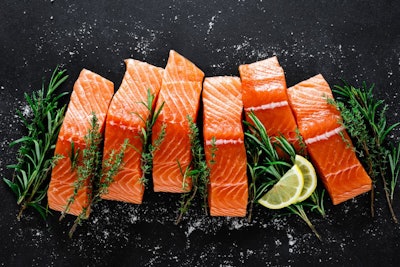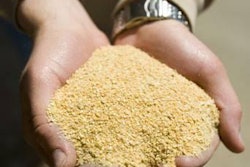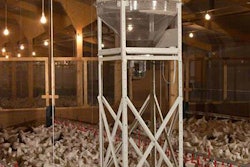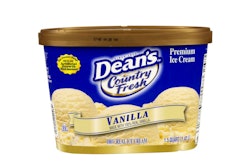
Trial finds salmon fed insect meal instead of fish meal appeals to consumers
Salmon fed insect meal may be more marketable to health-conscious consumers, a new study suggests.
The latest feed trial, funded by the Norwegian Research Council and published in the Journal of the Science of Food and Agriculture, determined that consumers found little difference between salmon raised on insect meal rather than fish meal. The finished fish fillets even contained slightly more omega-3 and omega-6 fatty acids than the conventional fish, offering potential health benefits for human consumers.
During the trial, farmed Atlantic salmon were fed diets in which insect meal consisting of black soldier fly larvae either partially or completely replaced fish meal. Fillets from the fish were then subjected to a series of nutritional analyses and tests, including a taste test with consumers and a panel trained in describing the fillets’ characteristics.
The study found little difference in the salmon fed black soldier fly meal, even when their diets contained no fish meal. When raised on insect meal, the finished fillets contained slightly more polyunsaturated fatty acids such as omega-3, potentially due to the increased fish oil in the insect-based diets. Consumers reported enjoying both fillets, though the taste tests noted slight differences in the fillets’ textural attributes, according to Giulia Secci, one of the authors of the paper and a research fellow in the Department of Agricultural, Food, Environmental and Animal Sciences at the University of Udine.
Whether the industry is ready to accept insects as an alternative feed ingredients, Secci said she believes the industry has no choice but to pursue alternatives for fish meal in aquafeed.
“We cannot over-exploit wild fish to obtain fishmeal and fish oil anymore,” she said in an email, “nor utilize as feed other vegetables sources such as soybeans or peas which could be directly consumed by humans.”
Interest in insect meal has increased steadily in the past decade, and barriers to mass production continue to decrease. “The production of this raw material should be largely increased soon, and many industries, researchers and farmers are working together in this direction,” Secci said.
At the same time, she pointed out, the amount of fish meal used in commercial salmon diets has decreased dramatically. In 1990, 90% of salmon feed comprised ingredients of marine origin; by 2013, the salmon diets consisted of less than 30% marine ingredients.












